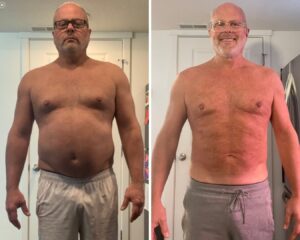After a night of tossing and turning, the battle against fatigue can seem insurmountable, especially for men over 50 who are working hard to maintain their health and vitality. While reaching for a quick caffeine fix might be tempting, there’s a more effective way to reclaim your energy: protein.
Why Protein Matters After Poor Sleep
Following a night of inadequate rest, your body craves quick energy sources, often leading to cravings for carbs and sugary snacks. However, these choices can lead to energy spikes followed by crashes, exacerbating feelings of tiredness. Protein, on the other hand, provides sustained energy, helping to stabilize blood sugar levels and keep hunger at bay.
Optimal Protein Choices for Recovery
Lean Meats and Fish: These provide high-quality protein without the added fats that can weigh you down.
Eggs: A versatile source of protein, eggs can help keep you feeling full and focused.
Plant-Based Proteins: Options like lentils, beans, and quinoa are excellent for those looking to reduce animal fat intake.
- Can protein really help me feel less tired after a bad night’s sleep? Yes, by stabilizing your energy levels and preventing hunger spikes, protein can help combat fatigue.
What are some quick, protein-rich breakfast ideas? Consider a smoothie with Greek yogurt, a veggie omelet, or a bowl of oatmeal topped with nuts and seeds for a protein boost.
Making protein a cornerstone of your post-sleepless night recovery can significantly impact how you feel throughout the day. By choosing foods that provide sustained energy and support your health goals, you can navigate the challenges of poor sleep with resilience and vitality, setting the stage for better nights ahead.






0 Comments